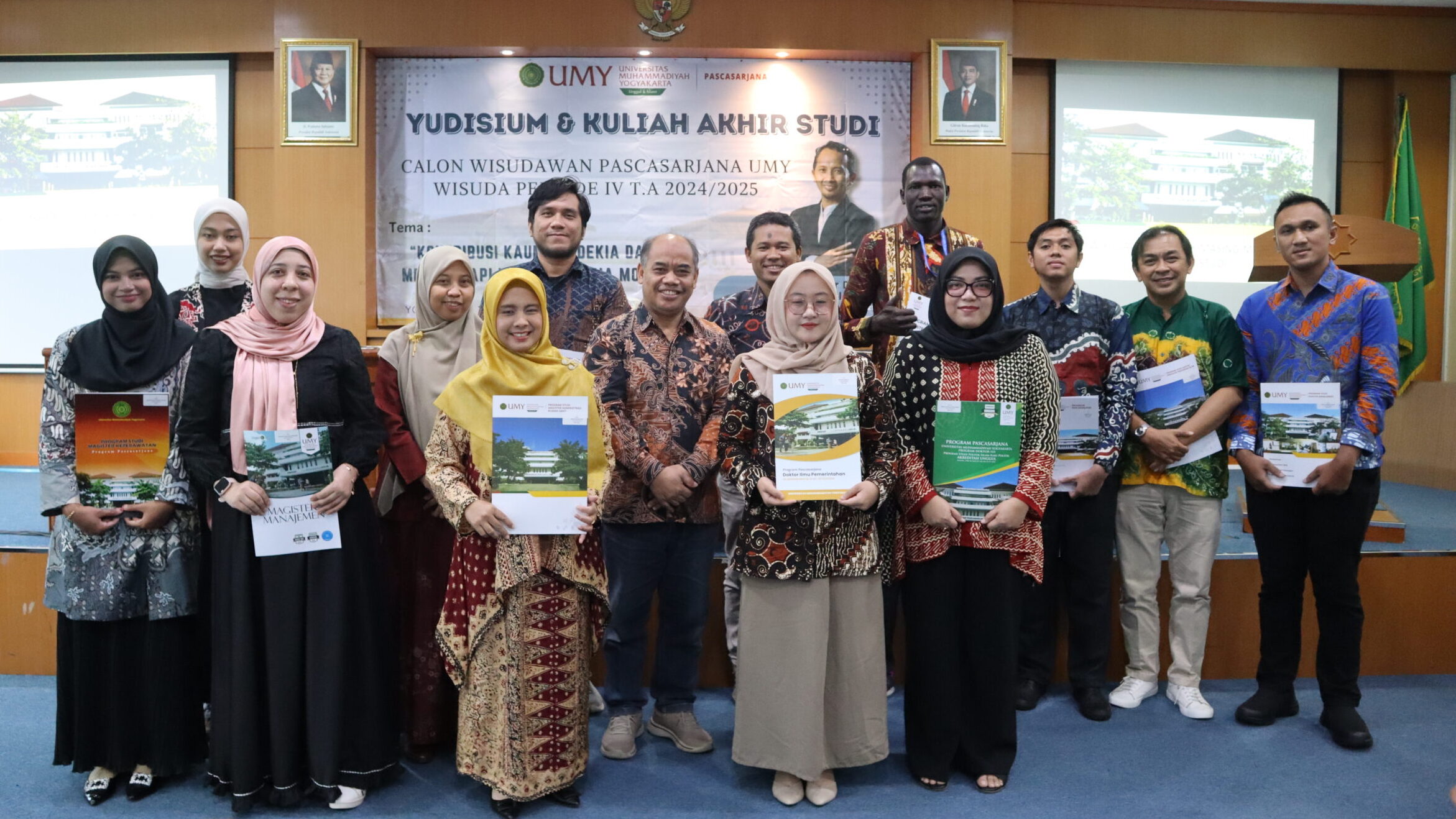

As reported on the official website of Universitas Muhammadiyah Yogyakarta, as it enters its 40th year, Universitas Muhammadiyah Yogyakarta (UMY) continues to uphold its tradition of achieving excellence and remains committed to serving the nation. UMY’s next role is to address the challenges of science development in the era of the industrial revolution. The current problem is that Indonesia is still at the user stage, despite having many graduates who are engineers, and is not yet ready to be a producer in developing science that is useful for society and able to adapt to the times. This was conveyed by Prof. Agus Purwanto, D.Sc., a Professor of Physics at the Sepuluh Nopember Institute of Technology, during the UMY Anniversary Reflection Night, which was held online on Sunday (28/2).
Prof. Agus Purwanto, D.Sc., stated that UMY is at the forefront of private Islamic universities that play a role in the development of science. “For that reason, we must look more closely at how science has developed on this earth. One example is how powerful science, especially atomic physics, was in the case of the Hiroshima bombing. Moreover, in the current era, which is entering the 4.0 industrial revolution, we often mention it in seminars but never evaluate where our position is. Have we reached the stage of 4.0 industrial revolution capabilities or not? In other words, are we players or producers, or just spectators, users, or consumers?” he said, who is also the author of the book “Verses of the Universe”.
In this regard, Prof. Agus reflected on the importance of implementing Qur’anic verses in the development of science and technology for universities. “As in the theology of Surah Al-Maidah verse 3, which simply explains the completeness and perfection in Islam that is summarized in the theology of God, nature, and humans. But unfortunately, until now, Muslims have only focused on discussing religious issues (the relationship with God), and have neglected the issue of nature. While those who focus on nature are Westerners, so Westerners are now able to understand nature well, utilize it, and elaborate on it so that they are so powerful in utilizing the development of science. Meanwhile, through the Qur’an, God has described nature in such a way, but this is what Muslims have neglected. Therefore, what we must do is intensify studies on how the message of God relates to nature through the Qur’an so that Muslims can soon understand and study, utilize, and process nature. That is what should be the role of UMY in the future to implement the development of science,” he added.
Therefore, the next role of UMY is to focus on faculties of science development, such as the Faculty of Medicine, Faculty of Engineering, and Faculty of Science, and give special attention to the fact that the issue of science and technology development is a message from the Qur’an through 800 verses in the Qur’an that encourage people to understand nature well. “To answer scientific questions, there needs to be collaboration between these three faculties, one of which is conducting collaborative research to find new research. To better understand the study of nature in the Qur’an, the role of the Faculty of Islamic Studies is to guide serious studies that come from the texts of the Qur’an to be translated,” he explained.
At the end of the event, Prof. Agus reminded the UMY academic community that Scopus is not the only barometer of the development of science but rather how universities can address the fundamental problems in society. “Therefore, the role of UMY in the future is to take the specificity of studying science by studying the Qur’an as a form of developing science and presenting new research. By taking the strategy of Islam as a discipline to be adapted to the development of the curriculum, because without the development of science, there will be no future to achieve,” he concluded. (sofia)